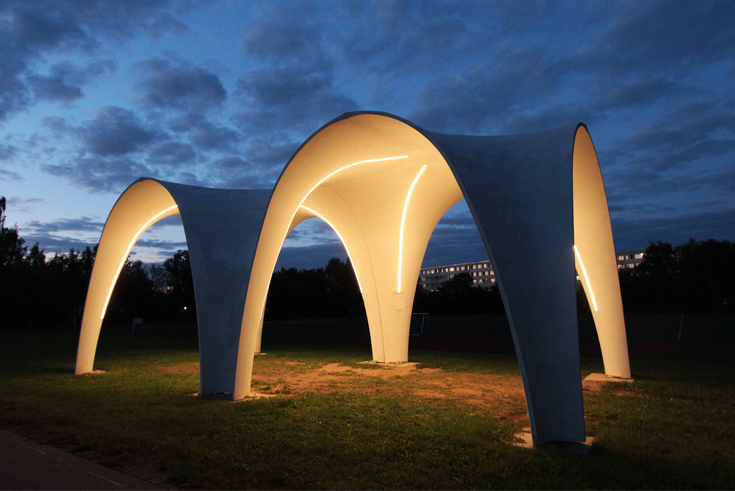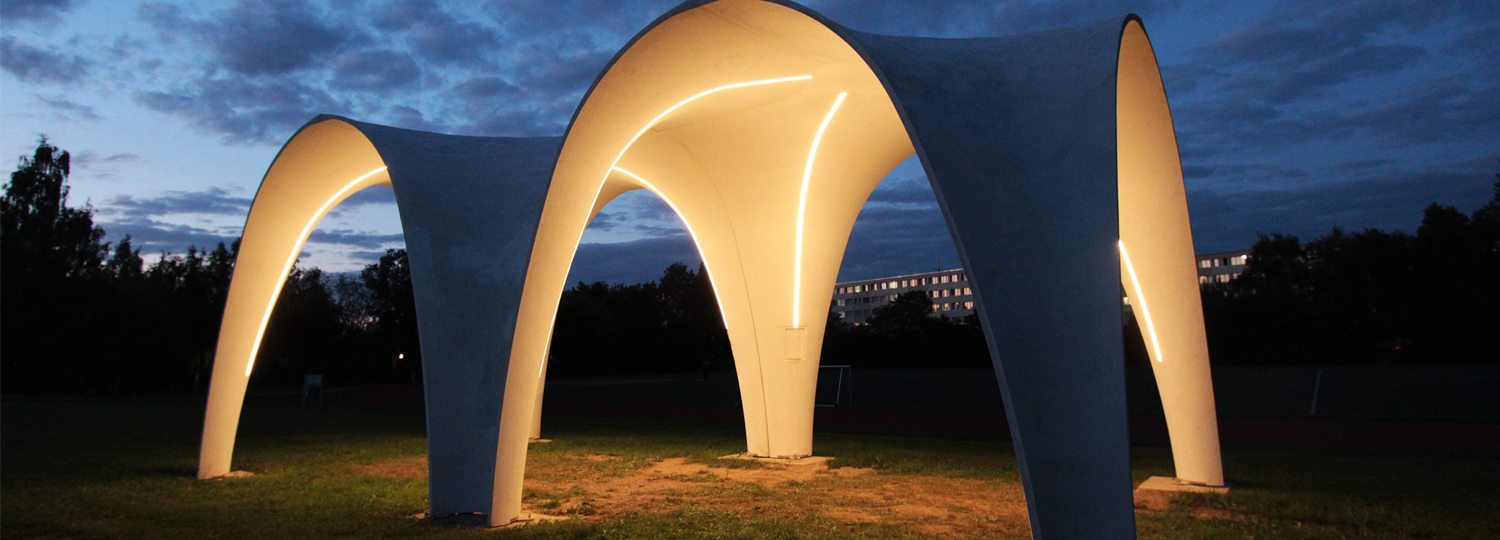Carbon fibre-reinforced concrete: New solutions for urban design purposes and road and bridge construction

Photo: Dr. Sandra Gelbrich
Concrete reinforced with textiles instead of steel has many advantages: it saves raw materials, has a high potential for lightweight construction and can thus be used in innovative ways. Moreover reinforcement fabrics such as carbon do not rust and therefore have a longer lifespan. The thin-walled carbon fibre-reinforced concrete shells were manufactured by means of a flexible formwork system made of glass-fibre reinforced plastic (GFRP), whereby the researchers first coated and preformed the textile reinforcement structures with resin and then integrated the fibres into the concrete for casting the shells. "GFRP formwork systems allow not only efficient production of curved textile-reinforced concrete elements but also the processing of excellent concrete qualities,” says Dr. Sandra Gelbrich, head of the Lightweight Constructions in Civil Engineering research group within the Department for Lightweight Structures and Polymer Technology at the technical university. In the meantime the scientists have erected research pavilions made of the carbon fibre-reinforced concrete on the campus. Integrated LED lighting controlled by sewn touch sensors is a special highlight of the prototype buildings.
More than 130 partners, including the Chemnitz Technical University, have come together in the C3 – Carbon Concrete Composite research consortium to pursue research and development of the composite made of carbon fibres and high-performance concrete. Their goal: to replace steel reinforcement, which is susceptible to corrosion, with a combination of carbon fibres, textile structures and concrete that will be less often in need of repair. "Moreover, new properties such as thermal and electrical conductivity are to enable the heating of the components and integration of sensors. The new material is intended to be more mouldable, solid, smart and recyclable", summarizes Gelbrich, emphasizing: “We expect completely new possibilities in civil engineering, first and foremost in the construction of bridges and roads.”
C3 – Carbon Concrete Composite
At the end of November 2015, the C3 consortium received the "Deutscher Nachhaltigkeitspreis" (German Sustainability Award) in the Research category. As the jury explained, the research and development of the new building material offers "a promising approach towards a paradigm shift in civil engineering and therefore in urban design". In other words, the C3 project can play an important role in a very incisive innovative thrust. The C3 consortium is coordinated by Dresden Technical University and funded by the German Federal Ministry for Education and Research.

